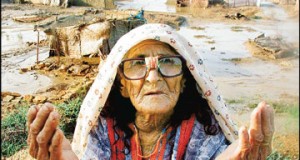In a classic guerilla attack, some 24 insurgents of the Baloch Liberation Front (BLF) (whose spokesman later took responsibility for the incident) stormed a Coast Guards isolated outpost in the Sundsar area near Gwadar. Of the 14 Coast Guards personnel manning the post, seven were killed, the rest wounded, while the two personnel missing were later claimed by the BLF to be in their custody. The attackers not only overran the isolated post held by lightly armed Guards, they captured and whisked away weapons and vehicles. The far-flung outpost did not have adequate communication facilities. Hence the response was belated and although Coast Guards, Frontier Corps (FC) and Balochistan Levies troops were rushed to the area to pursue the attackers, the trail may already be cold. In a similar attack last year, 10 Coast Guards personnel were killed near Gwadar.
While the loss of life in the incident is regrettable, the real responsibility for this tragedy rests on the policies being pursued in Balochistan by the military establishment through the FC and its intelligence agencies, who stand accused of the infamous ‘kill and dump’ policy, in which dissidents are ‘disappeared’, with their badly tortured and mutilated dead bodies being dumped all over Balochistan and of late even in Karachi. This policy has been in place since at least 2006, when Nawab Akbar Bugti was killed in a military operation ordered by Pervez Musharraf, at the time both COAS and president of the country. The elections of May this year may have fostered illusions in some quarters that with the advent of a more acceptable (than the corrupt buffoon Aslam Raisani) elected government in Balochistan headed by a moderate nationalist Dr Abdul Malik Baloch, peace would return to the troubled province. However, as predicted by knowledgeable observers of the province’s scene, as long as the operations of the military and its various paramilitary and intelligence arms were not brought under the control of the elected government, this hope was unlikely to be realized. So it has proved. During the election campaign, the steady crop of dumped bodies did not cease. On the day Dr Malik took oath as chief minister of the province, five mutilated dead bodies turned up. Dr Malik was expected to try and open dialogue channels with the insurgents in the mountains and in exile, and there have been reports that he has been attempting to do so. But what chance have these efforts in the continuing presence of the grisly harvest of dumped bodies? Reportedly, to avoid the widespread perception and charges that the FC was in the forefront of the kill and dump policy, the murderous task has been ‘outsourced’ to private death squads, some of whom have by now acquired immense notoriety for their cruel acts.
The approach to Balochistan’s troubles is mired in contradictions. The elected government in Quetta and its allied government at the Centre are playing the tune of reconciliation, while the military, FC and intelligence agencies are operating with impunity on an extreme repressive course. The kill and dump policy has yielded the collateral issue of missing persons which, despite the best efforts of the Supreme Court, its missing persons commission (from whom not much has been heard for some time), and now the new government’s task force, has not seen anything resembling a solution or even progress on the issue. The cream of Balochistan’s youth and intelligentsia seem to be the target of the military’s approach, perhaps in the fond hope that ‘decapitating’ the nationalist movement will help squelch it. What this approach ignores is that similar repressive policies against the Baloch since independence have failed to achieve the military’s desired outcome: eliminate any voice speaking for the rights of the Baloch, leaving the field clear to exploit the province’s undeniable potential mineral wealth. Since this latest incident has occurred in the vicinity of Gwadar, it must give pause to revisit the idea that a Chinese company will now complete and run the port as the preliminary step to the much vaunted economic corridor from Gwadar to Kashgar that Prime Minister Nawaz Sharif agreed on his recent visit to China. The Chinese are already nervous about their nationals’ safety in Pakistan and have asked for foolproof guarantees and security, but the troubled province of Balochistan, without a consistent reconciliatory rather than a repressive approach to a long standing political problem that bedevils the province, is unlikely to yield too much in the way of positive results.
(Courtesy: Daily Times)
Published in The Balochistan Point o July 29, 2013
 Balochistan Point Voice of Nation
Balochistan Point Voice of Nation




